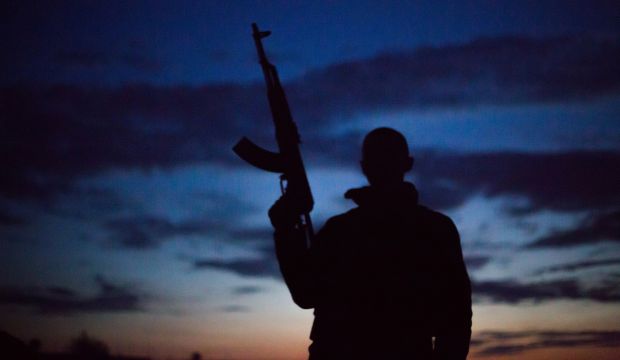The joint operation by US and Kurdish Peshmerga forces to free 20 Iraqis captured by the Islamic State of Iraq and Syria (ISIS) in Iraq has created much controversy, given that it is the first ground operation carried out by the Americans in Iraq since the decision to withdraw all US forces from the country. It was an operation that carried some risk, and that was clear when reports and statements confirmed that the US had lost one soldier during the raid to free the hostages from ISIS, which was intent on executing them. But the operation was also noteworthy because it was the first the US had carried out in coordination with any foreign forces on Iraqi territory since the end of the Nuri Al-Maliki era, during which the US had decided against having any permanent military presence in the country.
There has certainly been coordination between the Americans and the Kurds before. But this happened in Kobani, in Syria, where Kurdish forces reached out to the Americans after they were surrounded by ISIS forces. The US then hit the extremist group’s targets in the area with airstrikes, while the Kurdish forces on the ground assaulted ISIS positions with a ferocity that ended up inflicting heavy losses on the extremists and drove them out of the area.
By contrast, Iraqi forces fighting ISIS have not held their ground at all. We saw this most recently in the Iraqi city of Ramadi, which the extremist group captured in May using tactics combining suicide bomb attacks and booby-trapped vehicles. In Syria, meanwhile, the picture remains murky, especially after Barack Obama’s recent announcement that Washington would be reevaluating its support for the moderate Syrian opposition after many of them were captured by ISIS and ended up handing over their US weapons to the extremist group. Then came the Russian military intervention in Syria, which reveals a much more pragmatic strategy for working with forces on the ground fighting ISIS.
However, we must bear in mind that the Russian plan sees Assad’s army as its main partner against ISIS and the most likely candidate for defeating the group in Syria. This is of course a problem for those opposition fighters that both support the Syrian revolution against the Assad regime and are also fighting ISIS on the ground. They view the Assad regime as the problem and not the solution and want revolutionary forces to establish themselves on the ground in Syria and also drive out ISIS from the country so that its fighters can return to the various countries from which they came.
Until now, though, the Kurds have been the only fighting force that has proven its worth against ISIS, whether in Iraq or in Syria. But the Kurds also have political aims—and they have not been coy about them—to gain international backing for the establishment of their own autonomous state in the region. This has indeed been a sticking point for efforts seeking both to find a resolution to the Syrian conflict and drive ISIS out of Iraq.
It is a serious political problem, because anyone who would support such aims would put themselves at odds with Turkey, Iran, and other domestic factions. When it finally comes time for all to sit at the negotiating table and find political solutions to these crises, there would need to be a clear vision for solving this Kurdish dilemma. As things stand, there isn’t one, and this makes it extremely difficult to find any solutions to the current problems. We can put it like this: Turkey considers Kurdish calls for autonomy more dangerous to its national security than the threat of ISIS.
